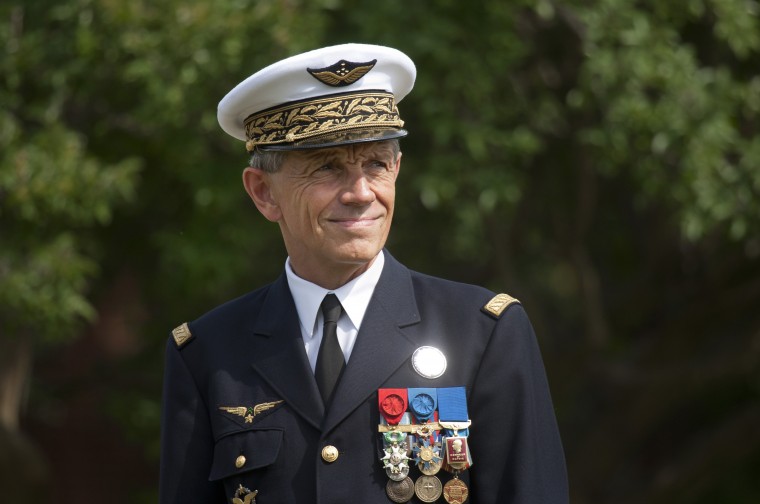
From Dianna Cahn, Virginian-Pilot: Today, [Gen. Jean-Paul] Paloméros sees global threats through the reverse lens – as leader of the international command that brings the 28 NATO nations together and ensures that they are prepared to respond rapidly to any future crisis.
"What I learned from Libya is that when the crisis occurs, most of the time we haven’t much time to prepare ourselves," Paloméros said in an interview last week as his Allied Command Transformation celebrated its 10th anniversary.
"We must be prepared. We must have a flexible air force capable to deploy as soon as possible; to integrate with each other, to work together with the U.S., the U.K., with all the NATO countries … and with partners. . . ."
Paloméros believes his command today is more integral than ever to NATO operations. At the last meeting of NATO country defense ministers, most of the discussion focused on training, education, smart defense and burden sharing between both sides of the Atlantic – all issues being addressed by his command, he said.
Paloméros arrived eight months ago – a Frenchman in Norfolk leading a multinational command in the middle of the world’s largest navy base. . . .
Mostly, this is a uniquely non-French experience. There are 700 people under his command from 28 countries in Europe and North America. Counting family members, the command integrates 2,500 multinationals into Hampton Roads.
Paloméros says he enjoys a close friendship with commanders here, particularly the head of Fleet Forces Command, Adm. Bill Gortney, and was thrilled earlier this month to give the graduation speech at the Joint Forces Staff College.
Norfolk’s proximity to Washington means that Paloméros has opportunity to exchange ideas with Pentagon officials – bringing to the forefront his role of being the key NATO officer in the United States.
His job is often a balancing act, getting more than two dozen nations to agree on what they will need to move forward and how they might need to work together.
Equally daunting: being the link between the United States and NATO’s headquarters in Belgium. It’s one thing to get small countries to share information, or pool resources so that, for example, there is a joint air transport system for smaller European militaries. A more complex task is finding the right balance of resources, burden sharing and control between a global superpower and smaller nations. . . .
"The trans-Atlantic alliance is about sharing responsibility and tasks and we have to make sure we balance that while the U.S. is looking in another direction – which is quite understandable," he said, referring to American interests in the Pacific. (photo: L. Todd Spencer/Virginian-Pilot)
Image: virginian%20pilot%206%2024%2013%20Palomeros.jpg
